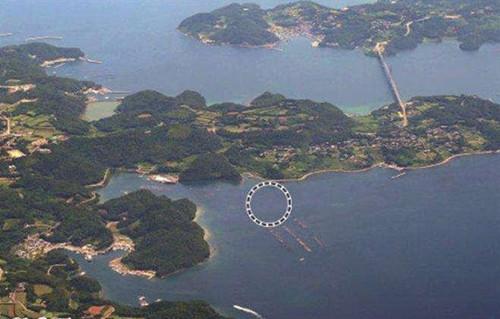
At the end of the last century, Japan inadvertently salvaged the wrecks of ancient China, which have been sleeping on the seabed for more than seven hundred years, but in a sense, they are still very valuable archaeological materials, because they witnessed the expedition of Kublai Khan, the ancestor of the Yuan Dynasty, to Japan, and in them, found the reason for Kublai Khan's failure.
In the era of cold weapons, aircraft have not yet appeared, so everyone will not fight in the air, only in water and land. Logically, the Mongol Iron Horse should be more proficient in land warfare, and Kublai Khan's main opponent at that time was the Southern Song Dynasty, so why did he have to spend huge manpower and material resources to cross the sea on an expedition?
The reason is very simple, in 1260 AD, Kublai Khan became the King of Khan, in 1271 AD, he founded the country with the title of "Yuan", during this time, Kublai Khan commanded his Mongolian iron horse to conquer the north, the ambition gradually expanded, he was eager to replace the Song Dynasty and become the next lord of the Central Plains. Since this was the case, he believed that small neighboring countries such as Goryeo and Japan should become vassal states of Ōmoto.
However, when Kublai Khan sent Lang Hede, Yin Hong, and others to japan in 1266 with their own letters of state, Japan refused Kublai Khan's request to "bring the whole country to the dynasty" and refused to emulate Goryeo, which had already submitted to Kublai Khan. Kublai Khan was so angry that he sent several more envoys, but they were rejected. Furious, Kublai Khan began to deploy plans to turn the Japanese archipelago into a central province.
In 1274 AD, the battle officially began. Before that, Kublai Khan made a series of preparations, and the army of this battle consisted of about 20,000 Mongolian and Han troops, about 13,000 Goryeo troops, and 900 warships of different sizes.
Trained by Genghis Khan, the Mongol Iron Horse is organized, disciplined, heroic and good at war, coupled with firearms assists, which can be described as powerful. At that time, the samurai forces of the Japanese archipelago were relatively scattered, and there was no habit of unified command, and in this regard, the combat effectiveness of the Japanese army was weaker than that of the Yuan army.
On October 3, the Yuan army set out from Goryeo and occupied the Japanese island of Tsushima on the 6th, attacked the castle of Iki Island on the 15th, near the northwest coast of the archipelago, and attacked Hakata Bay on the 19th, killing the defenders. At this time, the Yuan army was already in sight of victory, and when it reached the main island of Japan, it approached the local Prime Minister's Mansion, and then won successive battles, but at this juncture, an accident occurred.
At that time, the Japanese samurai resisted with all their might, and the Yuan army was not familiar with the terrain and did not understand the deployment of the other side, so they decided to temporarily withdraw to the sea to hold on, in case of any situation, they could attack and retreat. Unexpectedly, at night, the typhoon fell, the warships of the Yuan Army shook incessantly in the wind and rain, overturned and sank countless times, and a large number of soldiers fell into the water, and the cries for help and wailing were endless.
The commander Xin Du, fearing a sneak attack, ordered a squad to be dispatched immediately, and in this battle, the number of casualties of the Yuan army was about 13,500, most of whom died from the typhoon. Due to the concealment of the commander-in-chief, Kublai Khan mistakenly believed that Japan had surrendered, and sent envoys again, but the envoy Du Shizhong and others were executed by the shogunate as soon as they arrived in Japan. When the news came, Kublai Khan was furious and went on another crusade.
However, this time Kublai Khan's army still encountered a typhoon at sea, coupled with improper deployment, the final result was not as good as the initial results of the last time, coupled with the events of the Southern Song Dynasty distracted Kublai Khan's mind, he slowed down the plan to conquer Japan, and after his death, this plan was completely shelved.
Hundreds of years later, Japan salvaged the wreck of the Yuan Army and found that it was covered with rivets and the "Chuan" sample number, which shows that Kublai Khan urged the craftsmen to rush to work, and most of the finished products that were driven out were dismantled and patched together by old ships, and even many of them were inland river boats, and the river boats did not have the keel of the sea boats.
The finished products that were driven out were all punted boats of substandard quality, and when they encountered a typhoon, they could not gain a foothold at sea, and historians concluded after analysis: The secret of Kublai Khan's defeat lies in this, the basic combat readiness is unqualified, no wonder he lost to typhoons several times, and the expedition was futile.